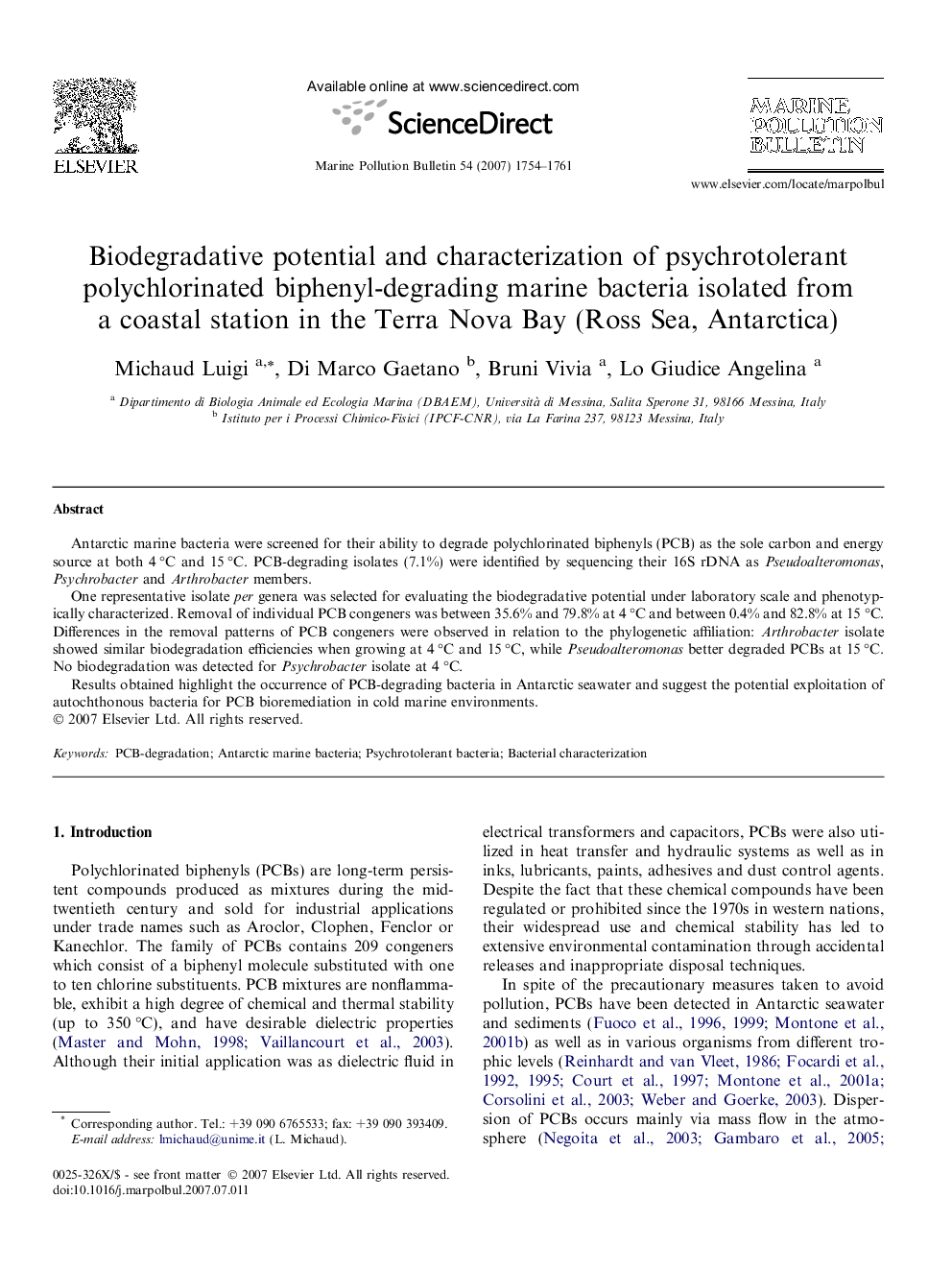| Article ID | Journal | Published Year | Pages | File Type |
|---|---|---|---|---|
| 4477815 | Marine Pollution Bulletin | 2007 | 8 Pages |
Antarctic marine bacteria were screened for their ability to degrade polychlorinated biphenyls (PCB) as the sole carbon and energy source at both 4 °C and 15 °C. PCB-degrading isolates (7.1%) were identified by sequencing their 16S rDNA as Pseudoalteromonas, Psychrobacter and Arthrobacter members.One representative isolate per genera was selected for evaluating the biodegradative potential under laboratory scale and phenotypically characterized. Removal of individual PCB congeners was between 35.6% and 79.8% at 4 °C and between 0.4% and 82.8% at 15 °C. Differences in the removal patterns of PCB congeners were observed in relation to the phylogenetic affiliation: Arthrobacter isolate showed similar biodegradation efficiencies when growing at 4 °C and 15 °C, while Pseudoalteromonas better degraded PCBs at 15 °C. No biodegradation was detected for Psychrobacter isolate at 4 °C.Results obtained highlight the occurrence of PCB-degrading bacteria in Antarctic seawater and suggest the potential exploitation of autochthonous bacteria for PCB bioremediation in cold marine environments.
